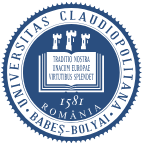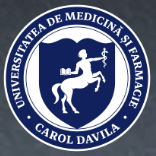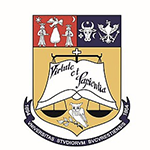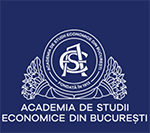Technical University of Civil Engineering of Bucharest (UTCB) is a public university in Romania. Here is a detailed introduction about it:
Introduction and Overview
Nature of the school: One of the public universities in Romania, under the jurisdiction of the Romanian Ministry of Education.
Student size: It has about 8,600 students.
Geographical location: Located in Bucharest, the capital of Romania.
History and establishment time
The history of the school can be traced back to the "Land Surveying School" in 1818 and the "Bridge, Road and Mining School" in 1867. It was officially established in 1948.
School Strength
Faculty: It has 540 academic staff with certain teaching and scientific research capabilities, and can provide professional guidance and support to students.
Course settings: It offers undergraduate, master and doctoral degree programs. The undergraduate course lasts for 4 years, the master's course lasts for 2 years, and the doctoral course lasts for 3 years. It covers multiple fields such as civil engineering, building services engineering, and engineering technology, with rich and diverse courses, including structural engineering, interactions in the built environment, and energy efficiency of building services.
Nature of the institution
A public university, funded and managed by the Romanian government, with the main goal of providing high-quality education and research in civil engineering and related fields, and is committed to cultivating professional talents for the country and society.
Educational philosophy
Although there is no exact and public official unique educational philosophy, as an engineering university, it may follow the student-centered, results-oriented, and continuous improvement concepts generally recognized by the international engineering education community, focusing on cultivating students' practical ability, innovation ability, and ability to solve practical problems, emphasizing the combination of theory and practice, so that students can quickly adapt to their jobs after graduation and have the potential for sustainable development.
Key laboratories and disciplines
Key disciplines: Civil engineering is its core discipline, with a high level of teaching and research in multiple professional directions such as building structures, water conservancy engineering, geotechnical engineering, and transportation infrastructure engineering. In addition, it also involves related disciplines such as building services engineering and surveying and mapping.
Key laboratories: No public detailed information about the specific key laboratories of the school has been found, but as a civil engineering college, it is usually equipped with building materials laboratories, structural mechanics laboratories, geotechnical engineering laboratories, hydraulics laboratories, etc. for teaching and scientific research practice.
Faculty
The school has a total of 7 colleges and 1 department, as follows:
School of Civil Engineering, Industrial and Agricultural Architecture: mainly teaches courses related to various types of building design, construction and management.
School of Water Conservancy Technology: focuses on teaching and research in water conservancy engineering, water resources management, etc.
School of Railways, Roads and Bridges: focuses on talent training and scientific research in the field of transportation infrastructure.
School of Building Services Engineering: provides education in building services related majors such as building equipment, HVAC, water supply and drainage.
School of Technical Equipment: involves teaching content in building construction technology and equipment, engineering machinery, etc.
School of Surveying and Mapping: teaches courses such as surveying and mapping engineering and geographic information systems.
School of Foreign Languages and Engineering: provides higher education courses in civil engineering taught entirely in English and French.
Ranking
According to the relevant ranking information in 2024, it ranks 26th in Romania and about 5040th in the world.
Cost
Tuition fees: The tuition fees for undergraduate and master's programs are about 1215 euros per semester, and the tuition fees for doctoral programs are about 1305 euros per semester.
Living expenses: The monthly accommodation fee is about 300 euros, the food fee is about 150-200 euros, the transportation fee is about 10-30 euros, and the total monthly living expenses are about 450-530 euros.
Campus environment
Campus facilities: It has a library, sports facilities, etc., which provides convenience for students' study and life. The library has a rich collection of books, journals and databases in civil engineering and related fields, which is convenient for students to consult materials and conduct academic research; sports facilities include playgrounds, gymnasiums, etc., to meet students' daily exercise and sports activities.
Surrounding environment: Located in the urban area of Bucharest, students can make full use of the city's resources, such as cultural venues, internship opportunities, etc. Known as "Little Paris", Bucharest is full of wonderful scenery and ancient wonders, and its streets are full of beautiful contrasts and vitality, providing students with rich options for their extracurricular life.
-

Grigore T. Popa University of Medicine and Pharmacy
-

Babes-Bolyai University
-

Carol Davila University of Medicine and Pharmacy
-

Politehnica University of Bucharest
-

University of Bucharest
-

Technical University of Cluj-Napoca
-

Bucharest Academy of Economic Studies
-

1st December 1918 University of Alba Iulia
-

West University of Timisoara
-

University of Medicine and Pharmacy of Craiova
-

Mesoamerican University
-

Istmo University
-

Mariano Galvez University of Guatemala
-

Regional University of Guatemala
-

Galileo University
-

Francisco Marroquín University
-

Rafael Landívar University
-

University of the Valley of Guatemala
-

University of San Carlos of Guatemala
-

Technological Institute of Tlaxcala Plateau
-

Golfo University
-

Technological University of South Sonora
-

Technological University of Huejotzingo
-

Tizimín Institute of Technology
-

Chilpancingo Institute of Technology

